Why Reset?
If you have been following along with our church, over the past several weeks, we have been participating in challenges that are meant to help us focus on our spiritual and physical health. Every day this month, we have had a group of folks commit to reading through the Gospel of Matthew, one chapter at a time. We have another group who is spending time in prayer daily. And still another group who is spending 20 minutes everyday moving their bodies, getting active, and encouraging one another to not be so sedentary. Plus, our children’s ministry is also learning sign language to the song “Firm Foundation” as a challenge of their own!
And we also have a group who is participating in a cleanse together. However, the cleanse is not just focused on what to eat or not eat (although that is a big part of any cleanse!). It is also focused on the mentality around why a person might do a cleanse, and especially why a person might do a cleanse from a spiritual perspective.
Which is not something that you necessarily hear in every church or from every Christian. It is not in our common practices or conversations. It isn’t about of our rituals or our worship services.
And yet, it was exactly the kind of thing that the people of Israel participated in daily.
If you have ever taken the time to read through books like Exodus, Leviticus, or Deuteronomy, you will see that over and over again, God commands the people of Israel to eat certain foods, avoid other foods, and that what they consume or discharge can affect their status in the community. God created on-ramps and off-ramps for purity and cleanliness. Take a look at a few of these passages:
Leviticus 11:24-25 – “You make yourself unclean by the following animals–whoever touches their dead bodies will be unclean until evening and anyone who carries part of their dead bodies must wash their clothes and will be unclean until evening.”
Leviticus 17:15-176 – “Anyone, whether citizen or immigrant, who eats an animal that has died naturally or that was killed by another animal that has died naturally, must wash their clothes, bathe in water, and will be unclean until evening. At that time, they will be clean again. If they do not wash or bathe their body, they will be liable to punishment.”
Deuteronomy 14:3ff – “Don’t eat any detestable thing. Here’s a list of animals you are allowed to eat…”
And this is just the tip of the iceberg. If we wanted to talk about regulations for disease, worship practices, or behavior toward one another, the laws go on and on. God shared this law with the people as a gift–something that would help them to be set apart as God’s holy people. In fact, take a look at what it says in Deuteronomy 14, just before the passage quoted above:
Deuteronomy 14:1-2 – “You are the Lord’s children. Don’t cut yourselves and don’t shave your foreheads for the dead, because you are a people holy to the Lord your God. You are the ones whom the Lord selected to be his own, to be a treasured people out of all other people on earth.”
The people’s identity and their practice of cleanliness were tied together. The way the people of Israel kept the law showed that they were different from the rest of the world. It caused other people to see them in a different light. They were not just like them. They had been called for a purpose.
So, why participate in a cleanse in 2021? Why do these ideas and laws from the Hebrew Bible matter to modern day Christians?
It isn’t because we want to be up-to-date and current on the latest health trends (although that is not a bad thing either). It’s not because we are fighting tooth and nail to stay relevant (although churches all over the Western world are certainly trying to do this). It is because we believe in our calling as God’s people, who can share with the world a different way of being and living. A way that is not determined by the status we hold in our culture, but by the status we hold before God. A way that shows we do care about God’s good creation, including ourselves and our bodies, and are not just waiting for a heavenly, cloud-filled future.
May we be God’s instruments in this world. May we care for the temples of our bodies. And may God shine through us so that the world may see God in us and through us.

